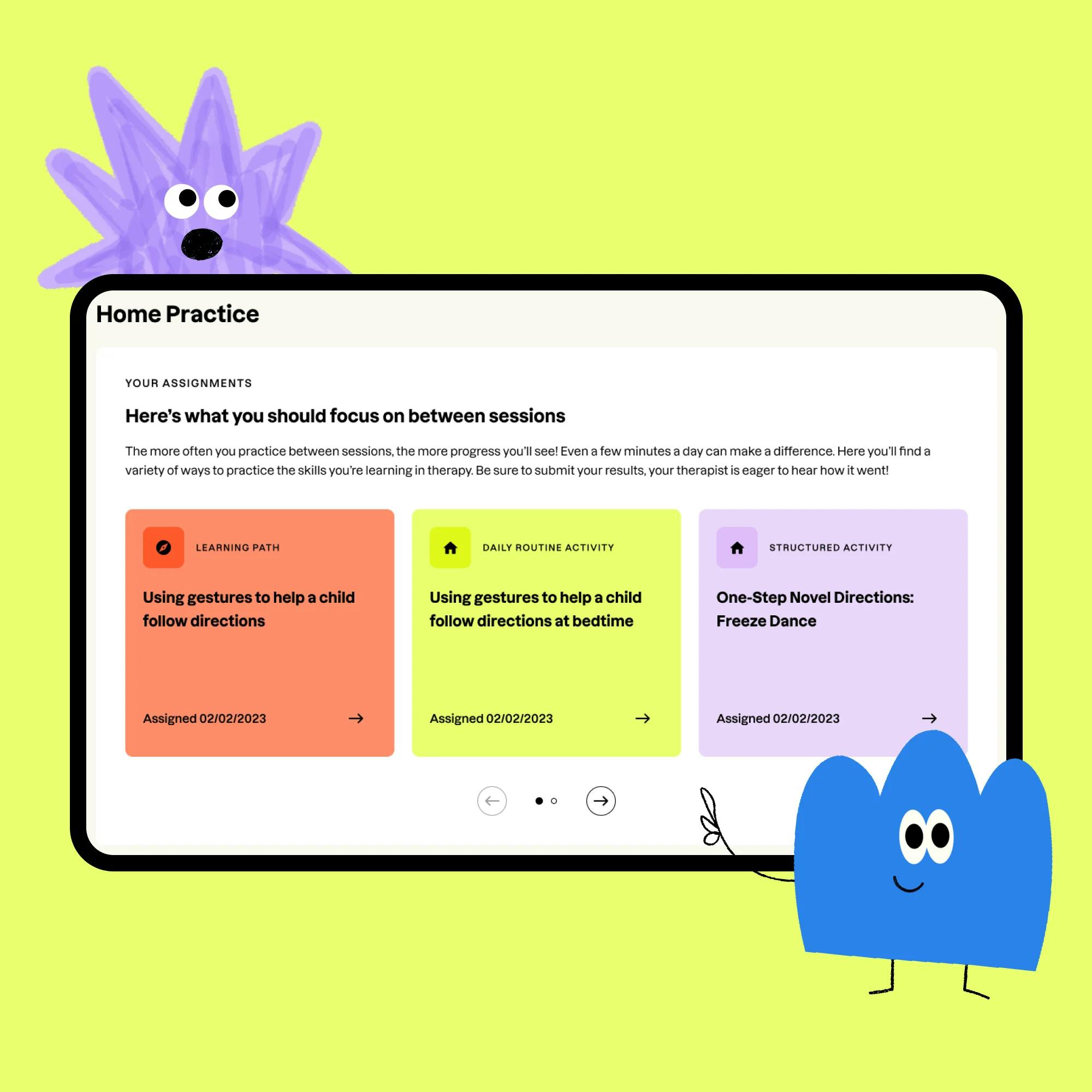Lemuel has had a stutter his whole life. Originally from Brooklyn, Lemuel (who goes by Lemmy) lives in a small Florida town and works as a manager at Walmart. He recalls his stuttering being so severe that when he was a teen, a librarian once thought he was speaking another language.
“I always had problems talking,” he remembers. “I’ve always been self-conscious about my speech. I knew I needed help, but I didn’t know how to get it.”
Lemmy has the benefit of having two sisters who are speech-language pathologists, and they helped him at home. After college, he looked for a speech therapist who worked with adults who stutter, but he couldn’t find one locally. A Google search led him to Expressable, and in March 2024, he began working with Katherine Humenik, MS, CCC-SLP.
Lemmy’s story is an inspiring one. A combination of fluency techniques, hard work, and self-reflection have led to more confidence, smoother speech--and even a promotion. Here’s how his journey took shape.
Support for people who stutter
Speech therapy can build your confidence and help you speak more freely. Find the right speech therapist for the support you need.
 Get started
Get startedA personalized treatment plan for stuttering
When Katherine began working with Lemmy, he struggled with rapid bursts of speech that made his words hard to understand. He had difficulty with breath support, and he repeated sounds and words. “Lemmy had really low confidence in communicating, but it’s hard to think of him that way now!” Katherine says.
In Lemmy’s treatment plan, Katherine focused on goals such as:
Shortening the lengths of his utterances and phrases
Coordinating his breath with his speech
Slowing his rate of speech, so he wouldn’t get tripped up on his words
There are many techniques that can help people who stutter achieve more fluent, or smoother, speech. Katherine taught Lemmy fluency strategies such as pausing and chunking, articulatory contacts, easy onsets, and cancellations. Together they worked on his breathing, and Lemmy learned to take more breaths through his nose, rather than his mouth.
Lemmy found the pausing and chunking technique to be especially helpful. Chunking involves grouping words into short phrases so you can express your thoughts more easily. Pausing between each phrase naturally slows down your speech and makes it smoother.
“Auditory reviewing helped Lemmy as well,” Katherine explained. “We’d record him speaking, then he’d listen to his speech and realize ‘whoa, that’s so fast.’”


Video journaling and at-home practice
“Speech therapy felt a little awkward at first, but then I got my footing and I started to see the progress,” Lemmy says. “The theme is ‘practice.’ Homework may not always be fun, but it’s necessary!”
Katherine reports that Lemmy has always been “super active” with the home practice she assigns him in the Expressable client portal. “He’s done many of his assignments two or three times,” she says. Lemmy especially enjoys doing read-aloud activities on historical trivia. He also likes answering questions about himself and recording his speech to listen back to: “It gives me a chance to practice how I talk in real life.”
Lemmy’s own self-reflection through home practice has been helpful for him overall.
One of the keys to Lemmy’s progress has been video journaling. “Katherine recommended that I record a video at night to recap my speech that day, to remember what I did well and what I need to focus on, and to stay positive,” he says. He then submits his journals to Katherine via the portal.
“Lemmy’s journal allows him to reflect on his speech journey,” Katherine says. “His own self-reflection through home practice has been really helpful for him overall.”


“Concrete proof that my hard work was paying off”
Katherine describes Lemmy as extremely friendly and talkative. “We have a great relationship,” she says. “I can tell he feels really comfortable talking with me now.” But Lemmy’s confidence isn’t limited to talking with Katherine. As part of his treatment, she invites other speech therapists to join their sessions for brief conversations. Lemmy enjoys the chance to practice his fluency techniques with new listeners and generalize his skills.
Lemmy has noticed his growth outside his therapy sessions, too. He recalls the first moment he realized that speech therapy was working. “I always dreaded talking in front of people. But then it went really well in a meeting at work,” he says. “I used my tools. I was able to get my words out. I took breaths, and I didn’t have to speed up or slow down. It all crystallized. It gave me concrete proof that my hard work was bearing fruit.”


“I’m not alone in stuttering”
Today, Lemmy has made enough progress that he’s ready to reduce the frequency of his sessions. He’d expected to need two years of speech therapy, but Katherine believes he’ll likely graduate sooner than that. In the meantime, Lemmy appreciates the ease and cost savings of doing speech therapy online at home. (“I don’t have to commute on my day off!” he notes.)
Lemmy’s come a long way from his self-conscious feelings about his stutter. “At first it felt embarrassing to be an adult who couldn’t communicate well. I thought speech therapy was for kids,” he recalls. “I felt isolated in my own head, but Katherine made me realize I’m not alone in stuttering. Lots of people have disfluencies.
“Now I have more confidence to speak professionally and in everyday conversations, whether it’s with people I don’t know, on the phone, with customers, or with people at work,” he adds.
Speech therapy has given me the tools to navigate whatever minefield speech brings me to.
Katherine points out that Lemmy’s promotion to manager last year is a direct result of that confidence. “I know this treatment helped him. He has the confidence to run meetings, lead job interviews, and talk to his employees. That probably wouldn’t have happened if he wasn’t in speech therapy.”
As Lemmy sums it up: “Speech therapy has given me the tools to navigate whatever minefield speech brings me to.”
Ada's story
After sudden stuttering took over Ada's speech, online speech therapy helped her regain her confidence and say what she wanted to say.
 Read Ada's story
Read Ada's storyFind a speech therapist for stuttering today
It’s never too late to start speech therapy. Our speech therapists are experienced in supporting adults who stutter, teaching fluency techniques and building a sense of empowerment. Get matched with a speech therapist who works with adults, and start your journey to more confident speech.
How Expressable Can Help
Concerned your child isn't reaching age-expected milestones? Looking for communication support from a professional? Expressable is a national online speech therapy practice serving children and adults. We treat all major areas of communication and feeding, offer flexible hours including evenings and weekends, and accept most major health insurance plans. We’re proud to have earned more than 3,000 5-star reviews from our clients (4.9/5 average).
Our therapy model is centered on parent and caregiver involvement. Research proves that empowering caregivers to participate in their loved one’s therapy leads to better outcomes. That’s why we combine live, 1-on-1 speech therapy with personalized education and home practice activities for faster progress.
Communication is more than words. It’s how we share how we feel and show who we are. We’re here to help you or your child do just that.
 Abby Barnes, M.S., CCC-SLP
Abby Barnes, M.S., CCC-SLP












